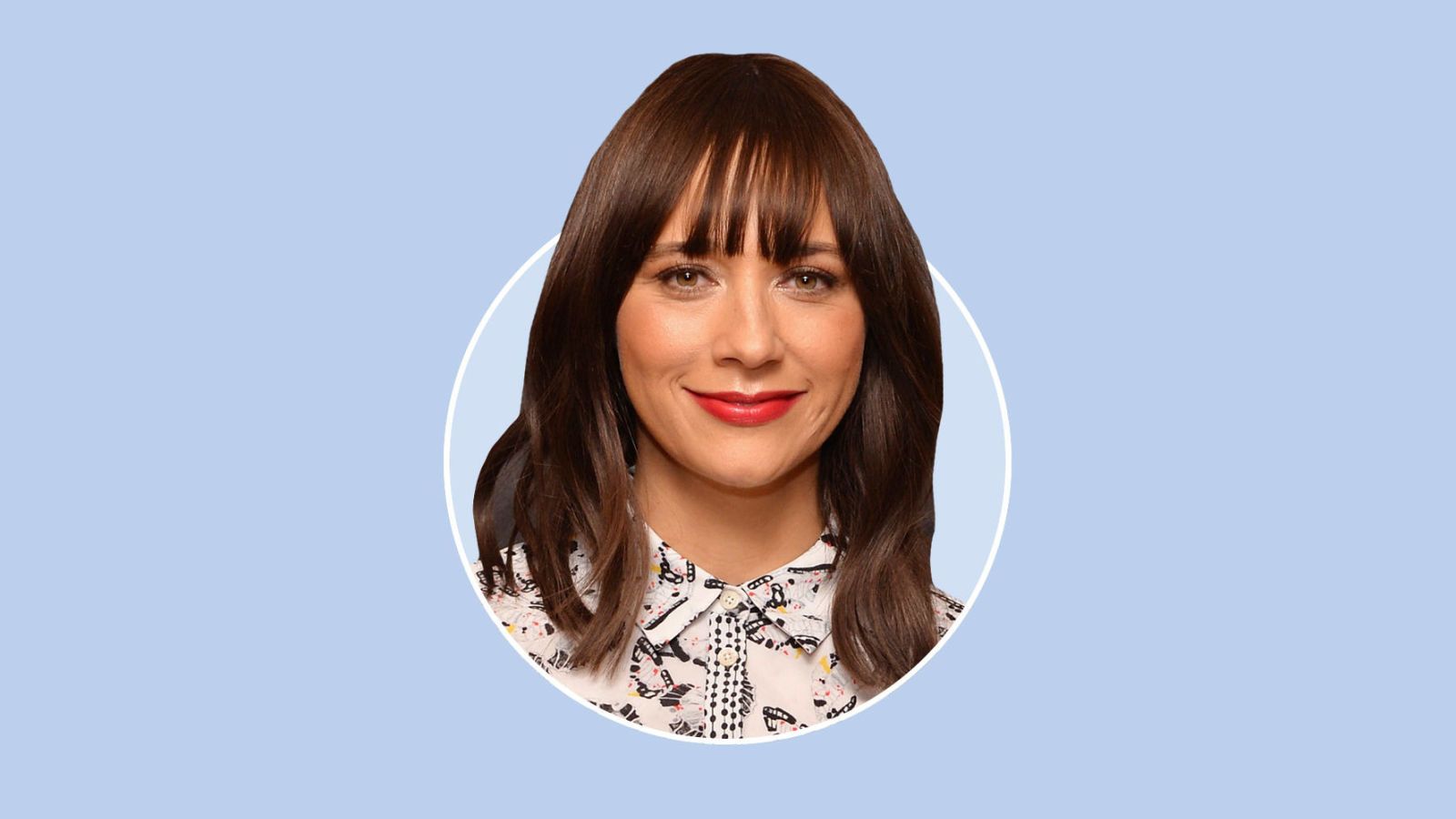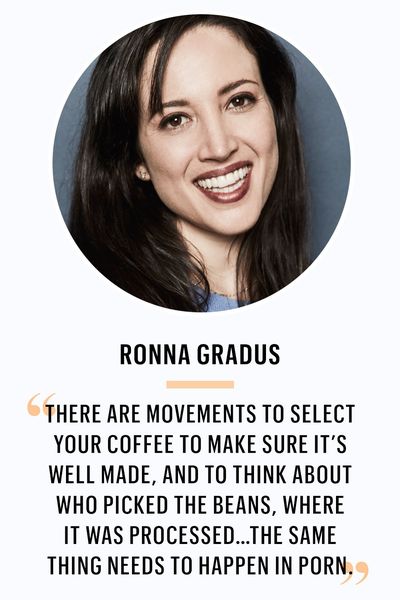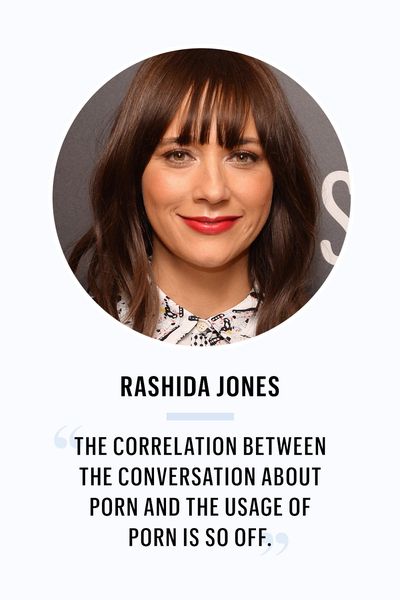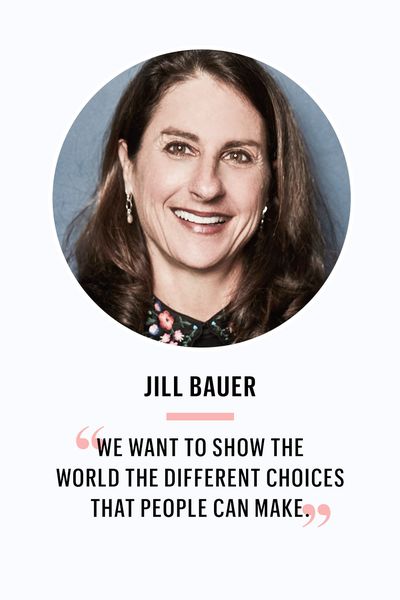Rashida Jones Wants Us to Rethink Our Relationship with Sex, Porn, and Technology
We sat down with the Hot Girls Wanted: Turned On director and her co-producers Jill Bauer and Ronna Gradus at Sundance for a candid chat.


After Hot Girls Wanted, the 2015 Rashida Jones-produced documentary about how the amateur porn industry seduces and manipulates young women, its filmmakers were inundated with praise—and lots of questions. "You know, we got some blowback," says Ronna Gradus who, along with Jill Bauer, produced the sequel, Hot Girls Wanted: Turned On, which premiered this year at Sundance. "There was this idea that we were focusing on the 'negative' side of porn, which was not our intention."
Their newest project, with Jones co-producing and directing, looks at how technology affects sex, relationships, and (yes) porn. Sitting in the Variety lounge at Sundance, Jones, Bauer, and Gradus chatted told MarieClaire.com about how the project came about, how women make porn differently, and what it means to be producing this type of work in our current political environment.
Marie Claire: Did you come out of Hot Girls Wanted knowing that you were going to do similar work?
Rashida Jones: It wasn't planned. I think Jill and Ronna spent so much time in this world that they were kind of done, but then it was like, stories kind of organically emerged and showed themselves and they felt there was more to talk about and I was thrilled because I love working with them. And I also think porn is one of those things that's so heavily consumed and the correlation between the conversation about porn and the usage of porn is so off, and anything we can do to sort of boost that and invite people to talk about it is good.

MC: In this project, you focus on female creators. Did you go in with that kind of framing in mind?
Ronna Gradus: Yeah, I would say during the making of Hot Girls Wanted, we were looking at a very, very specific genre of porn—amateur porn. So we did, you know, get some blowback. There was this idea that we were focusing on the "negative" side of porn, which was not our intention. You know we had found this story and we followed it and it was a great story and there's only so much we can do in one film. So we definitely had it in mind to go back and explore other kinds of porn, especially when we wanted to know whether it was different when a woman's directing or is behind the camera. And, as the episode shows, we would say yes!
Jill Bauer: One of the women in Hot Girls Wanted, Rachel, had not such great experiences [in porn]. So when we were talking to her, we asked if she had good experiences, and she had filmed with Holly Randall and said she was treated so well and that she felt beautiful, and that's one of the things that Holly talks about. So we were interested in telling that positive story about porn.
Get exclusive access to fashion and beauty trends, hot-off-the-press celebrity news, and more.
RG: And about Erika, who has such control over what she puts out in the world, creating the image that she wants to create. It's this idea that women are really paying attention to the women that they film and what it puts out in the world.
MC: It's a very interesting look into how our brains are being rewired by technology. What was the most fascinating finding to you?
RJ: I think that you know, this whole hookup culture, we've witness the courting process disappear. And that's just what it is. I have no judgment on that. But I do feel there is a certain amount of distance and apathy that's created when you feel like there's a distance between you and the other people. So it's very easy to…when you have an app that sets it up where you very clearly swipe somebody's face off of your screen because you don't like the way they look, you're asking people to not appeal to their best selves. You're asking people to be brutal. And I think that sort of ghosting culture, and the fact that you don't have to look somebody in the eye and tell them how you feel, you can just write a shitty comment on their Facebook page or on their Instagram, I think we are normalizing this distance. As much as we're becoming singular with our technology, we're also, we're accepting this scrim of apathy. And I think it's hurting our relationships. And I really believe that there are a lot of things that come close, that are virtually relationships or connections, but there's really no substitute for whatever pheromonal exchange is happening in person—there's no substitute for that.
"If we can actually be consumers of product in a way that can affect the marketplace, we can change it."— Rashida Jones
JB: I think you know technology is moving so fast, and people are so connected but so disconnected. And, honestly, what kids see—that's always surprising to me. There's such a big disconnect between what kids see and what parents think their kids see.What exists on the internet is so surprising. If I wasn't doing this work, I'd never know what existed on the internet.
RG: We partnered with Indiana University and the Kinsey Institute, and we got to see data that was specifically relevant to this topic. And we have an entire generation that's being shaped by porn—their sexuality is being influenced in a real way. And I think that's why it's so interesting to see these very programmed behaviors in today's porn—pounding really hard or putting hands around someone's neck, choking—really aggressive behavior. What does that say about what people are learning?

Marie Claire: The idea that porn can be a feminist act has been around for quite some time—but with the depletion of resources to make substantive porn for and from a female perspective, and the rise of "punishment porn," do you think we're past the point of no return? Can we reclaim porn as a feminist space?
RJ: Definitely. I think there's tons of room to reclaim that. I mean unfortunately or fortunately, everything is about consumerism. If there's money to be made, there will be an audience and people will feel empowered and I truly believe that women haven't fully tapped into their potential as a market. I know women who watch porn, I've watched porn, and if we can actually be consumers of product in a way that can affect the marketplace, we can change it. It doesn't have to stay this way. We just have to encourage others to talk about it, we have to encourage other women who do watch porn to subscribe, because those things cost money—when you want to make mature erotica that's artful, it costs money. But I do think it's an untapped market for sure.
RG: I think the porn that's more exploitative towards women, like relying on the super young for this system that pulls them in on the fast money for very low production value, is the problem. The only thing that's really going to change porn is if when people start paying for it. There are movements to select your coffee to make sure it's well made, to think about who picked the beans, where it was processed...the same thing needs to happen in porn. And if that money goes back into porn the way it used to, when people liked to buy videos and magazines, then we will see more women being able to work in that space.
MC: But will people pay for porn? It's like most industries now, right? Struggling to figure out how to make money. What's the incentive?
JB: Exactly. We don't know. And you see that. You see that when we're filming at Holly's mom's house [Suze] and she calls it her "ranch that porn built." And she's amazing, but you could see her shaking her head as Holly recounts how she has to produce so much content. She has that quote that's basically, in her day she had three days to produce one shoot, and Holly has to produce three shoots in one day. And Holly—she's so self-possessed and really questions what she's doing, and I think it's so interesting because we kind of entered her life at a time when the industry is changing so much and she's questioning what's next for her.

RG: And Erika, her big battle cry is putting more positive messaging into porn. Showing what sex can look like. She has two daughters, and that motivates her a lot. She understands that porn is sex education, and she's very realistic about it, which a lot of people are not. So she's very cognizant of images. But that takes money. If we want that to change, it's going to cost money.
MC: We're in a political climate that forces us to regularly confront sexual assault. How do you hope viewers will interact with this project in light of our culture right now?
RG: We were doing this before the elections were underway, but I hope this cracks open conversations. We're living at a time where the reality is that you know our president has openly admitted to sexual assault and has said terribly degrading things about women, and now we feel more revved up to continue this work, to really push people to talk about women and the way they're depicted and how sexuality is being shaped.
"We're living at a time where the reality is that you know our president has openly admitted to sexual assault and has said terribly degrading things about women." —Ronna Gradus
JB: The president's a role model for a lot of people. We can see, statistically, what happens when young minds experience certain things. And it seems that consideration is even more important now.
RG: And the great thing about Netflix is that viewership is vast—all kinds of people watch Netflix. So it's such an amazing opportunity to be able to show people intimate stories that make you think.
JB: We want to show the world the different choices that people can make.
MC: Are there other plans for more work of this nature? Another doc?
JB: We'll see! We will see.
Hot Girls Wanted: Turned On will premiere on Netflix this year.
Follow Marie Claire on Facebook for the latest celeb news, beauty tips, fascinating reads, livestream video, and more.

Samantha Leal is the Deputy Editor at Well+Good, where she spends most of her day thinking of new ideas across platforms, bringing on new writers, overseeing the day-to-day of the website, and working with the awesome team to produce the best stories and packages. Before W+G, she was the Senior Web Editor for Marie Claire and the Deputy Editor for Latina.com, with bylines all over the internet. Graduating from the Medill School of Journalism at Northwestern University with a minor in African history, she’s written everything from travel guides to political op-eds to wine explainers (currently enrolled in the WSET program) to celebrity profiles. Find her online pretty much everywhere @samanthajoleal.